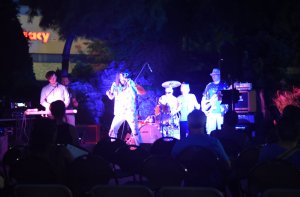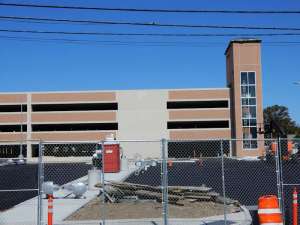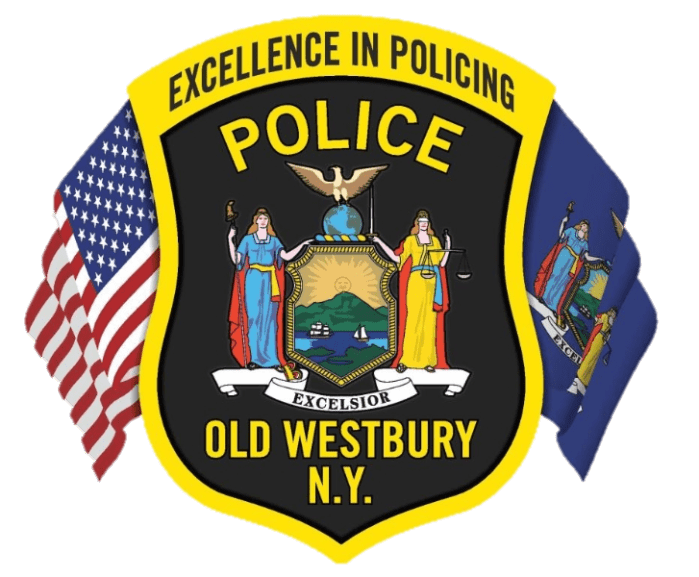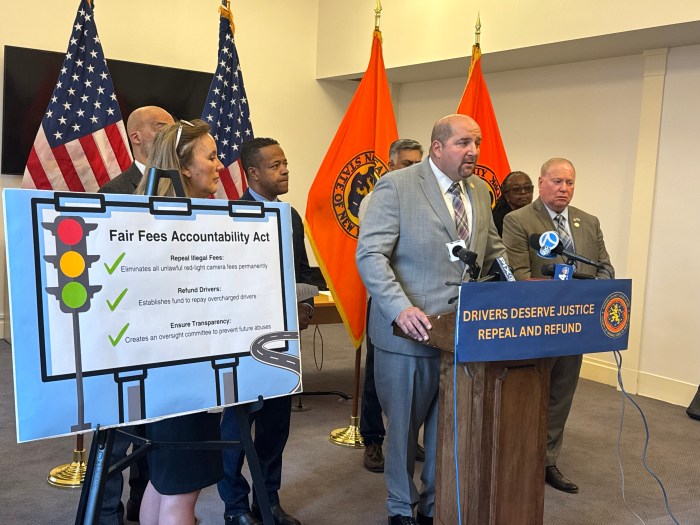Mayor seeks return to normalcy

COVID-19 colors everything, and will determine what kind of year the Village of Westbury will experience. The Westbury Board of Trustees meeting on Jan. 7 gave Mayor Peter Cavallaro an opportunity to reflect on 2021.
“Our hope is to get past the COVID to get our community as back to normal as possible and keep our business district functioning without losing any more [businesses].” Cavallaro said. “We’ve been lucky so far—we haven’t had a large attrition. There are a couple of businesses that probably won’t be reopening. But we’ve also had a couple of new businesses that have opened already.”
This year the village hopes to close the book on the seven projects generated by winning the $10 million Downtown Revitalization Initiative (DRI) grant from the state in 2016.
“Many of the DRI projects will be completed this year. Some of the major ones will be done,” Cavallaro noted.
Building Inspector William Mello stated, “The community center has wrapped up. We have just sent in our closeout documents to the state.”
The center consists of the Senior Center, the Recreation Center and the Sports Complex. Money from the DRI was directed at renovations and improvements at all three buildings, which in non-pandemic times get heavy use.
Mello noted that the expenses at the center came in under budget and he would ask the state for permission to transfer the funds to the Westbury Arts Building (WAB) project.

Speaking of the WAB, “Everything is still on schedule to be completed by late February. The only things still holding us up now is the first floor and the elevator,” Mello said, adding, “The streetscape at Post and Union [Avenues] is scheduled to begin Feb. 1. We’re still waiting to hear from the contractor on how they plan to do the work.”
The parking garage is nearing completion, according to Mello, and the MTA is looking to hand it over—probably in late February/early March.
“There is a period of time when we have to go through an approval process with the MTA to get our final stamp of approval,” Mello said.
The mayor observed, “We’re keeping a real close eye on the fiscal situation. As everyone knows, the first half of the fiscal year, which starts in June, is over. We had revenue loss because of COVID and fees and other revenues we did not realize. We had expenses from [Tropical Storm Isaias]—$200,000. That hopefully will be reimbursed 75 percent by FEMA. So we will be working on that.”
U.S. Senator Charles Schumer of Brooklyn, now the Senate majority leader, has said he will seek 100 percent reimbursement from FEMA from Isaias-related damage.
“We build up good reserves, so we were able to weather the storm,” the mayor said. “The revenue issues may be impacting our budget, which we will be adapting in March. Sometimes people say that we are too conservative with how we’re spending our money. But we do that for times like this that you can’t anticipate. I’m optimistic for the year. I think the beginning of the year is going to be difficult for people in general because the COVID is still hanging on until the vaccine is well-distributed. As we get around towards summer a lot of that will be hopefully fading and some of our summer activities, such as concerts, can hopefully resume.”
Interview With the Mayor
Late last year, Cavallaro appeared on LI Main Street News with Eric Alexander, executive director of Vision Long Island, and organization devoted to promoting a “more livable, economically sustainable and environmentally responsible growth on Long Island.” Some excerpts:

On winning the DRI grant: “I think the work we had done in preceding years really positioned us to win that award. I think the DRI program looks for downtowns that have something going on. That have some energy, but kind of need the resources to take those efforts to the next level. And that’s what I and my board have been trying to do. One thing in local government I’ve been trying to say is, you have a lot of ideas, you have a lot of things that you’re trying to accomplish, but you never have enough resources to do all the things you wish you can do. The DRI grant enabled us to fund seven projects, all centered around our downtown area near the train station, to take various aspects we had of our downtown area to the next level.”
Partnership with the MTA: “We have a really good working relationship. The Third Track Project impacts us to a very great extent. And I think I was the first mayor along the main line come out and support the project. I thought it was time. But I also thought it was the opportunity for us to work with the MTA to get certain capital improvements that we needed, both transit—related to the train, but also to our community in general. That partnership has given us some credibility to ask them for things that we needed to have happened in connection with the project, and for them to listen with an open ear. We didn’t get everything, but we’ve gotten significant capital investment in our community because of that partnership.”
The parking garage: “It’s going to double the parking capacity of our train station. A lot of that is going to be preserved for resident-only parking because we own the land. Some of it will be open for non-residents as well. And we situated that parking garage in a lot that we own, and not adjacent to the station, but we pushed it back several hundred feet so that it’s much more proximate to our downtown. So it will provide additional parking for part of our business district.”
Going through the pandemic: “It’s been difficult, it’s been challenging. Whenever you go into a new year, you never now what’s going to confront you. Every January seems to bring a new challenge to the community. This is a different animal. It affects everybody and every family and every business and every organization that you have in your community. We’ve tried to be as active as we can with our community organizations. We’ve tried to get information and share resources when they were available.”

On downtown businesses: “We’ve fortunately seen most of our businesses struggle through and survive. When I speak to the business owners and the residents they all have a generally positive attitude about the future, even though they’re all worried about the effects of the pandemic—and some of them have been directly affected through family members and whatnot. But I think everybody has a generally positive attitude about our ability as a community to come out on the other end okay and in a place where we can build from.”
Back to normal: “I’m hoping that a lot of the normal activities that we have and which were canceled [last] year we’ll be resuming [in 2021]. We’re going to be seeing the start of the completion of our streetscape project and the opening of our [Westbury Arts Council] building and I think we’re going to have a big event, to cut the ribbon in a way that people will know what’s there. We hope to have our summer concert series resume—we had to cancel them [last] year and try to do some of them virtually. That’s a series where every Thursday night from June through the end of August we have a free concert. We hope to have a street fair—our Business Improvement District has a huge street fair, usually in the fall, but because it was canceled, we’re hoping to have it in the spring and maybe repeat it in the fall. We’re hoping to have our sports teams and leagues resume their activities.”
Being a mayor: “Village government is the level of government closest to the people. That is absolutely true, and it has a lot of advantages. And sometimes it has a lot of disadvantages because you’ll be shopping at the bakery and someone will [confront] you with a problem. That’s a minor thing. But the huge advantage of being a local mayor is, if  you do it right, and you do it conscientiously, you really have the pulse of the good and bad things that are going on, or some of the things that need to be addressed. My style as mayor, and maybe to the chagrin of my staff, is that I’m very hands-on and want to touch everything that’s happening. As a mayor, you have to be involved with everything, because you wouldn’t be serving if you didn’t have a vision of where you wanted your community to go. And by electing you, your residents have stamped their imprimatur on what you’ve articulated as your vision.”
you do it right, and you do it conscientiously, you really have the pulse of the good and bad things that are going on, or some of the things that need to be addressed. My style as mayor, and maybe to the chagrin of my staff, is that I’m very hands-on and want to touch everything that’s happening. As a mayor, you have to be involved with everything, because you wouldn’t be serving if you didn’t have a vision of where you wanted your community to go. And by electing you, your residents have stamped their imprimatur on what you’ve articulated as your vision.”
His tenure: “I want to make sure that Westbury is better off when I leave office than when I came into office. And I’m hopeful that we’re moving in that direction. We were joking earlier that being mayor is my 40-hour-a-week hobby. Most mayors on Long Island are part-time mayors, but most of us are putting in full time to make sure that we’re administering our duties to make sure our community is well-served. I grew up in Westbury. To me, being mayor is proprietary. I take it personally. I try to inject that passion for the community into the things that we do. Right out of law school I was appointed to the planning board, which was a good starting point. I served on the planning board for 12 years. And I served on the board of trustees for 10 years under Ernie Strada when he was the mayor, and Ernie was the mayor for 28 years. So I got a really good tutelage under Ernie. I’m finishing my 12th year as a mayor. So if you add it all up, that’s been 32 years in village government.”
The community: “I’m a believer in the community. What I say to people about Westbury is, ‘If you live there you get it.’ Sometimes if you’re not from Westbury you’re thinking different things about the community which aren’t true. Obviously, the community is ever changing and you have to make sure that you’re in tune with what’s going on and what people want. Because what they want today is not what they wanted 10 years ago. The key to a dynamic community is always looking to the future and augmenting as you go to make sure it’s always going to be the place where people want to be.”
Anton Media Group thanks Eric Alexander for permission to quote from the interview.




























